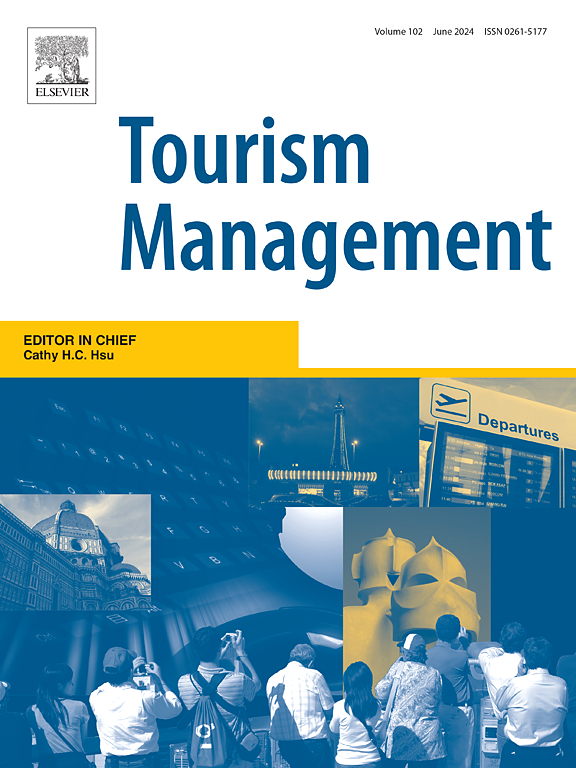反思创造性形象
IF 12.4
1区 管理学
Q1 ENVIRONMENTAL STUDIES
引用次数: 0
摘要
创意形象的概念源于心理学,在旅游研究中得到了广泛的应用。在认知-情感-意向(CAC)模型中,它传统上被认为是目的意象的结果成分。然而,它存在概念模糊、理论重复、对意志过程的考虑有限以及对当今数据丰富的环境的适应不足等问题。这些问题也削弱了其分析驱动游客行为因素的解释能力。为了克服这些挑战,我们提出了一个扩展的旅游目的地研究创造性框架(eCFTD)。这种方法将行为意图从实际行动中分离出来,从目的地形象中去除意向性因素以避免循环推理,并整合意志因素,如自我效能、行动计划和意图稳定性。eCFTD适用于实体目的地、虚拟目的地和合成目的地,采用技术驱动的助推技术来加强目的地管理。通过解决关键的限制,它提供了一个严格的和数据知情的方法,推进旅游研究和实际管理。本文章由计算机程序翻译,如有差异,请以英文原文为准。
Rethinking conative image
The concept of conative image, originating from psychology, has been widely applied in tourism research. Within the cognitive–affective–conative (CAC) model, it is traditionally regarded as the consequential component of destination image. However, it suffers from conceptual vagueness, theoretical tautology, limited consideration of volitional processes and inadequate adaptation to today's data-rich environments. These issues also undermine its explanatory capacity to analyse the factors driving tourist behaviour. To overcome these challenges, we propose an extended conative framework for tourism destination research (eCFTD). This approach separates behavioural intentions from actual actions, removes conative elements from destination image to avoid circular reasoning and integrates volitional factors, such as self-efficacy, action planning and intention stability. Applicable to physical, virtual and synthetic destinations, eCFTD employs technology-driven nudging to enhance destination management. By addressing key limitations, it offers a rigorous and data-informed approach that advances both tourism research and practical management.
求助全文
通过发布文献求助,成功后即可免费获取论文全文。
去求助
来源期刊

Tourism Management
Multiple-
CiteScore
24.10
自引率
7.90%
发文量
190
审稿时长
45 days
期刊介绍:
Tourism Management, the preeminent scholarly journal, concentrates on the comprehensive management aspects, encompassing planning and policy, within the realm of travel and tourism. Adopting an interdisciplinary perspective, the journal delves into international, national, and regional tourism, addressing various management challenges. Its content mirrors this integrative approach, featuring primary research articles, progress in tourism research, case studies, research notes, discussions on current issues, and book reviews. Emphasizing scholarly rigor, all published papers are expected to contribute to theoretical and/or methodological advancements while offering specific insights relevant to tourism management and policy.
 求助内容:
求助内容: 应助结果提醒方式:
应助结果提醒方式:


